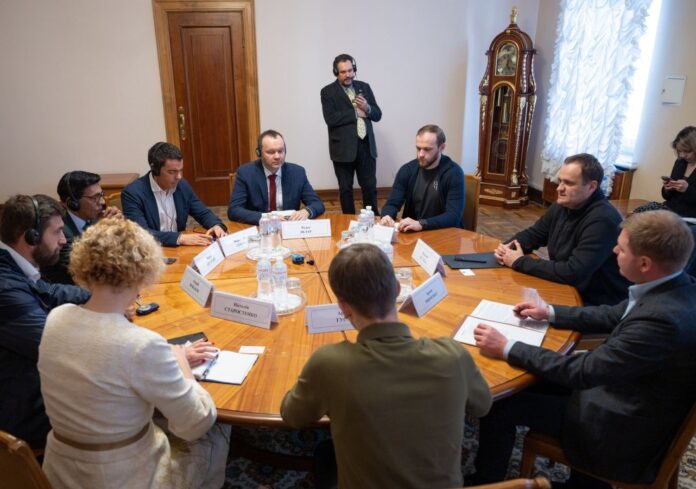Three MEPs of the Regional Development Committee, Younous Omarjee (The Left, FR), Andrey Novakov (EPP, BG), and Marco Ros Sempere (S&D, ES), met Ukrainian representatives in Kyiv in a mission to Ukraine from 29 October to 1 November 2023. The discussed Ukraine’s post-war reconstruction and country’s EU accession.
Better-targeted financial help and closer cooperation with Ukraine´s regions will be necessary to help reconstruction of the country following Russia’s aggression, say Regional Development MEPs who have returned from a four-day mission to the country´s capital.
Deputy Head of the Office of the President of Ukraine Oleksiy Kuleba participated in a meeting with the delegation. The Deputy Head of the Office of the President expressed gratitude to the partners for their all-round support, especially for aiding Ukrainians who were forced to seek refuge in Europe due to full-scale Russian aggression.
The sides discussed the implementation of the decentralisation reform, which has been ongoing since 2015 and agreed to collaborate on regional policies that aim to strengthen the entire country.
European partners underscored the importance of adapting the best practices from other EU candidate countries to the Ukrainian context, to create an effective system of governance that suits the current situation in Ukraine and the European region as a whole.
“We continue to work together on the decentralization processes to create an effective system of governance. I am convinced that we should adapt the experiences of other candidates to create our own unique and effective system. The decentralization reform has significant support from Ukrainian society, and strong communities are already demonstrating its results. Therefore, this process will undoubtedly continue with the support of our partners,” Oleksiy Kuleba said.
MEPs continued their discussion with the Chair of the Committee on State Building, Local Governance, Regional and Urban Development Olena Shulyak. They focused on the cohesion challenges and needs of Ukrainian regions, especially in the context of the twin green and digital transition. They also discussed division of competences in Ukraine when it comes to regional development and put emphasis on the necessity to build strong local and regional authorities. The role of cohesion in country’s territorial, social and economic development was discussed at the meeting with the representatives of the Economic Development Committee.
MEPs also touched upon the necessary reforms to be completed before country´s EU accession, including with Ukraine´s parliamentarians from the Integration Committee and Foreign Policy Committee. They further discussed how to support cooperation between the two parliaments on existing and upcoming projects in the context of reconstruction of Ukraine and country’s EU accession.
MEPs also talked about the need for strengthened rule of law and stressed the necessity to fight against corruption at their meeting with the representatives of the Anti Corruption Policy Committee of the Verkhovna Rada.
Given the importance of local and regional authorities as well as third sector actors in the development of the local and regional environments, MEPs met representatives of the National Association of Regional Development Agencies (NARDA), Association of the Ukrainian Cities, Association of Amalgamated Territorial Communities and Association of District and Regional Councils. They also exchanged views with civil society representatives from the CHESNO Movement.
Besides parliamentarians and local actors, delegation had the opportunity to discuss the role of decentralisation and multilevel governance in the current Ukrainian efforts with the representatives of the Office of the President of Ukraine and Minister for Development of Communities, Territories and Infrastructure Oleksandr Kubrakov.
Upon return, lead MEP and chair of the Regional Development Committee (REGI) Younous Omarjee (The Left, FR) said: “Although the attention today focuses on the Middle East, we were in Ukraine to tell the Ukrainian people that we are not turning away from Ukraine, from the war that continues to rage there and that our support is total. It will not weaken. We were there to support mobilization of the budgetary facility of 50 billion euros and implementation of the necessary reforms for Ukraine’s future EU accession. We have expressed our support for reinforced decentralization, transparency and the fight against corruption.”
Ukraine applied for EU membership in February 2022 and was granted EU candidate status in June 2022. The European Union has pledged a long-term support to Ukraine against Russia’s aggression as well as significant post-war reconstruction assistance. On 17 October, the European Parliament approved a €50 billion facility to support Ukraine’s recovery, reconstruction and modernisation from 2024 to 2027.

